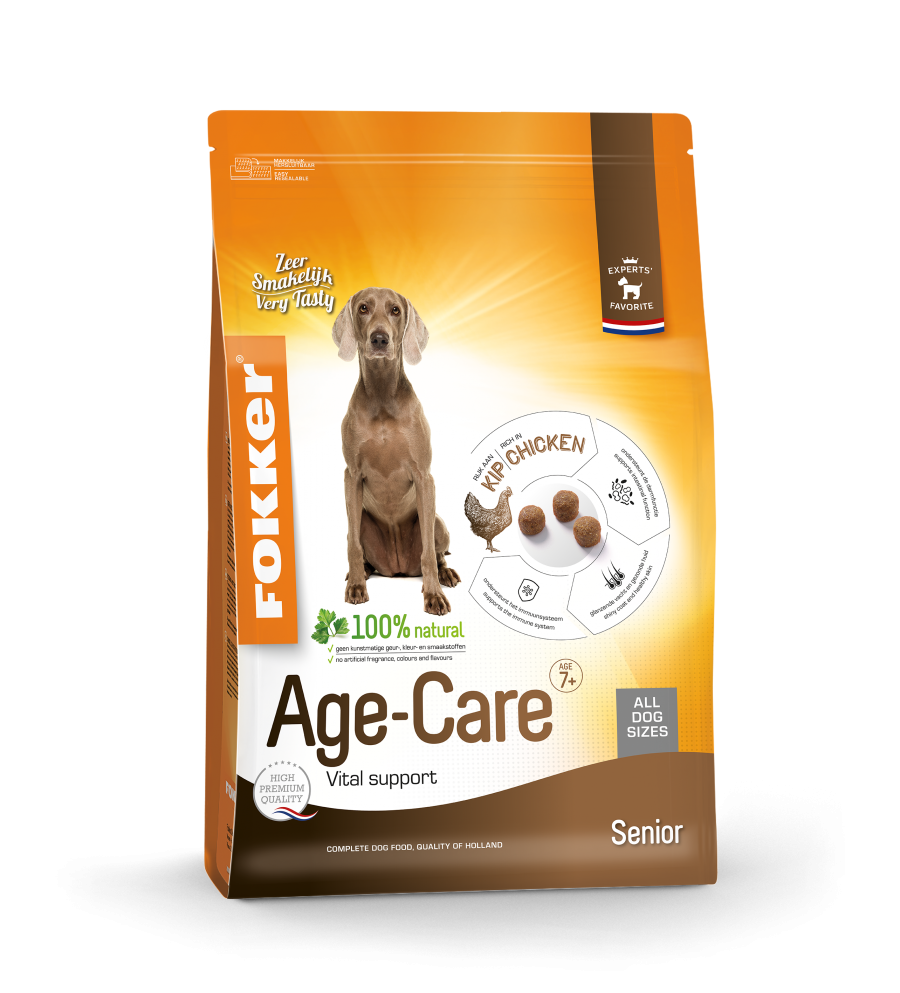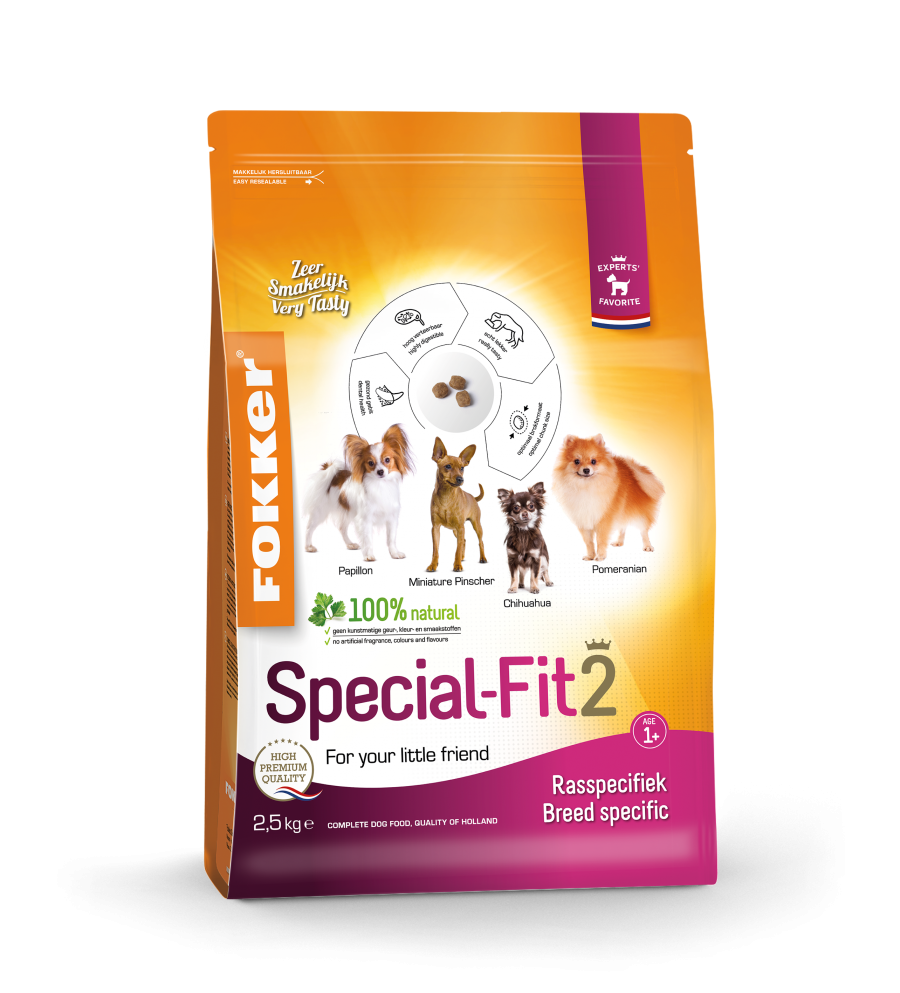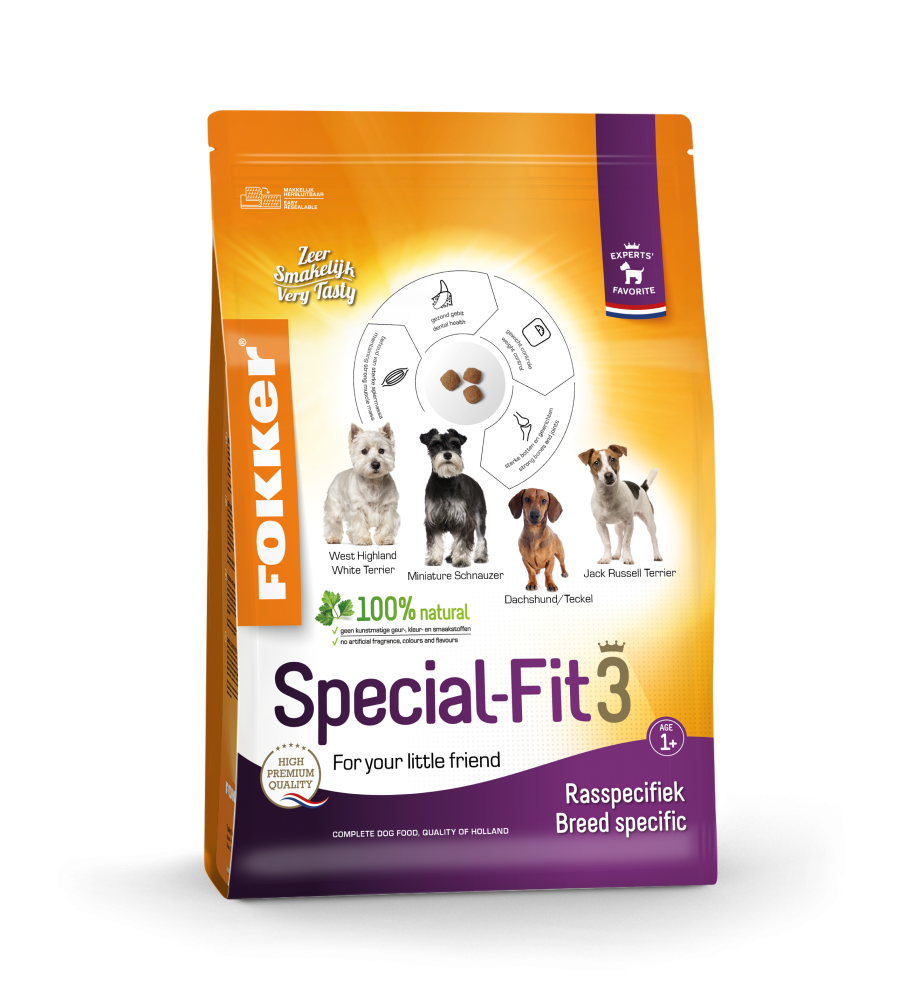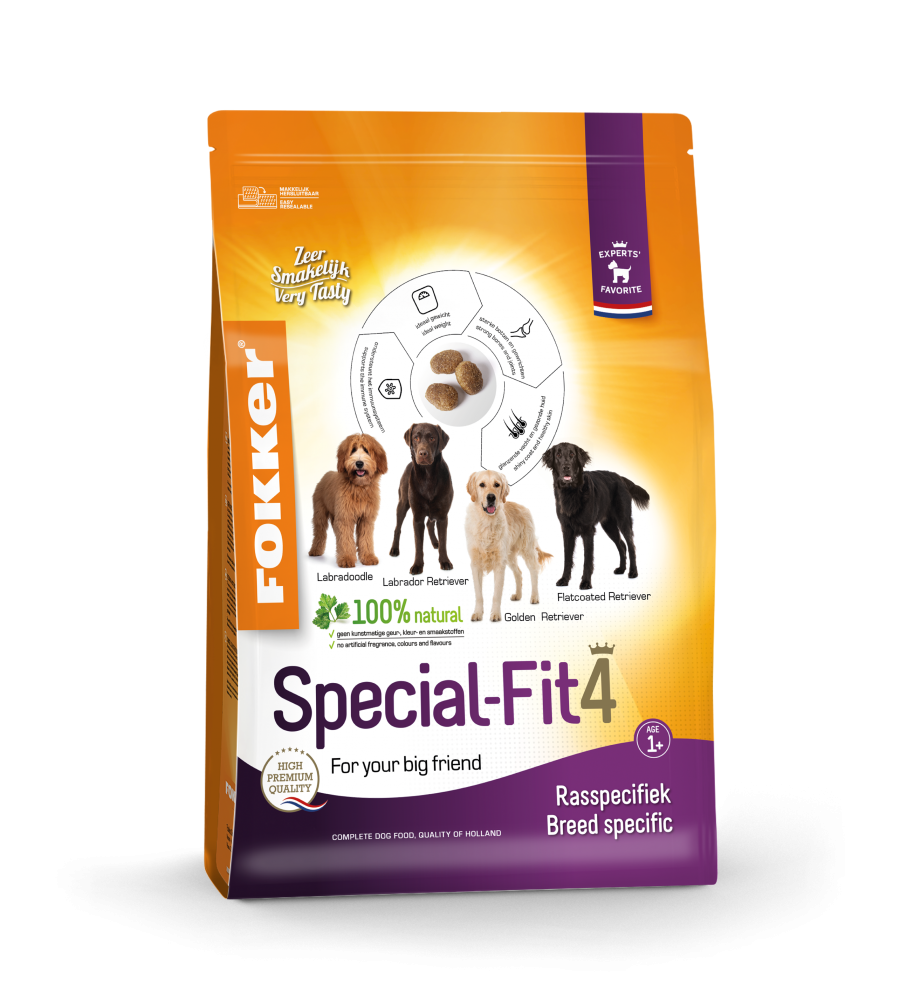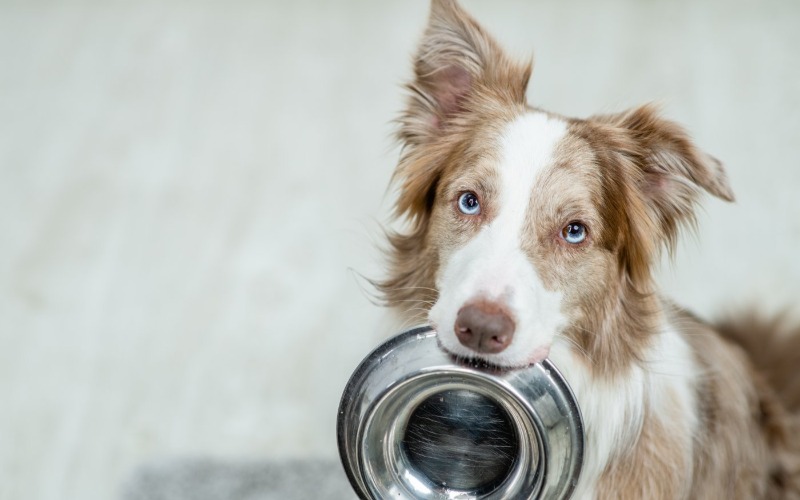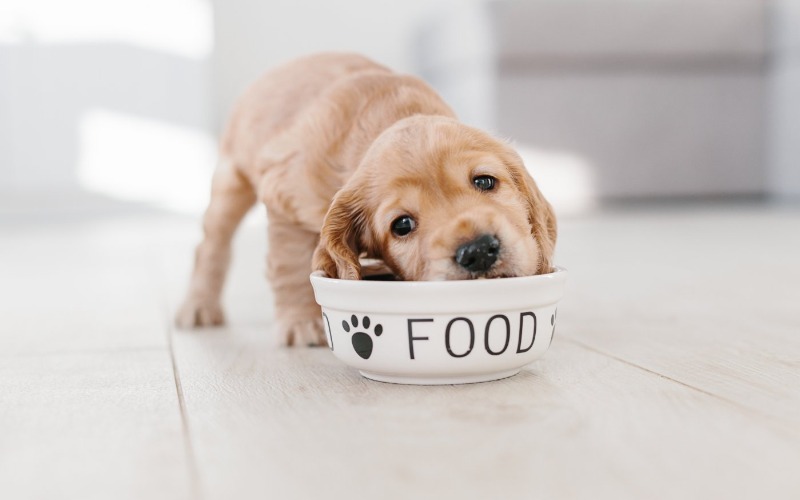Just as every human being is different, every dog has its own specific preferences regarding nutrition. Proper nutrition is very important for a dog. This helps keep them healthy and fit. When you delve into which food is best for your dog, you can end up in a jumble of information. We are happy to help you choose!
What to look out for?
Although puppies all come into the world small, you soon see the first differences in size arise. Therefore, if you're picking out puppy food, this is the first point to pay attention to. Find out what the average weight is for an adult dog of your puppy's breed, and adjust your choice accordingly. A good pet food brand has puppy kibble available for different weight classes.
For example, our Fokker Opti-Grow is available for different dogs:
Small dogs
Medium-sized dogs
Large dogs
In the first 9 to 18 months – depending on the breed – your puppy is in full growth. The food should meet the special nutritional needs of puppies. Kibbles for puppies contain, among other things, a high nutritional density with more (animal) proteins, essential vitamins and minerals and omega 3 and 6 to support the skin and coat. Furthermore, it is important for large breeds that feed contributes to an even growth of the skeleton. This helps prevent growing pains and problems later in life.
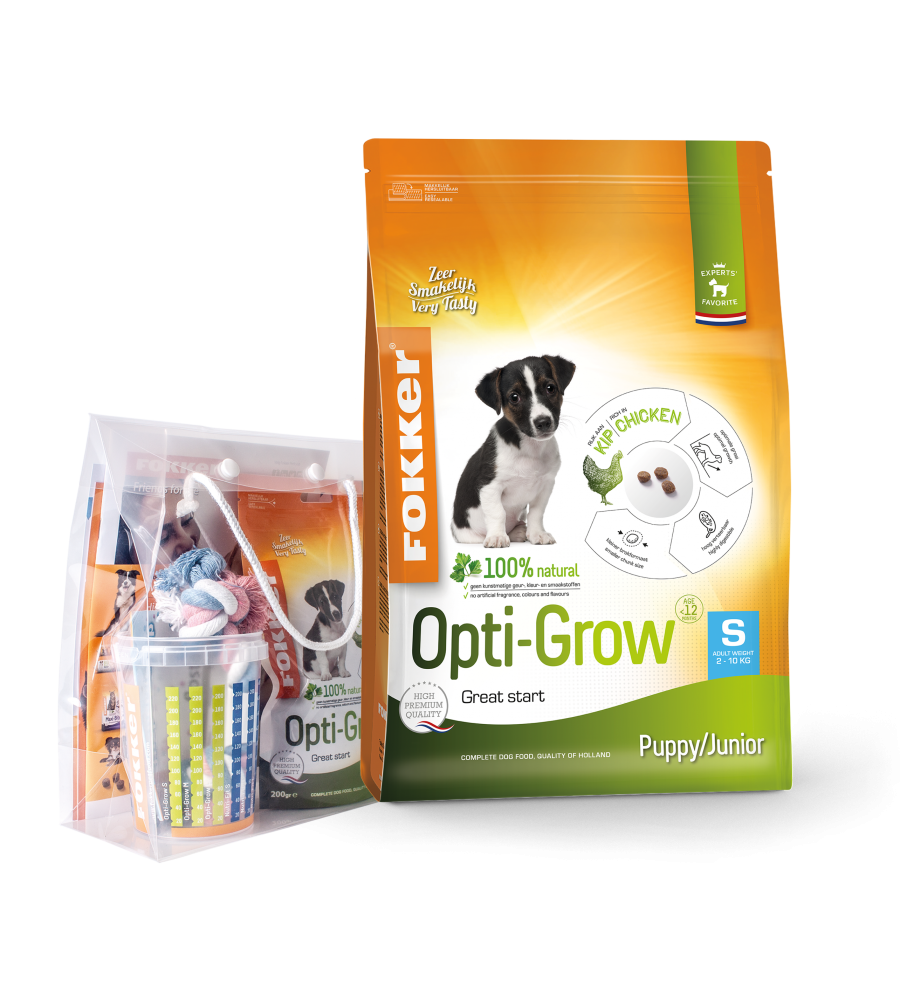
Good nutrition is indispensable and with the right care and attention you will have a buddy for life.
See productNutrients and more
In your search for a good type of food, you first look at the characteristics of your dog. A puppy that is still growing needs different nutrients than your faithful friend at age. This also applies to a Chihuahua and a Great Dane. After castration and sterilization, nutritional needs change. Keep this in mind in your choice of feed.
The next step is a quality check of the feed. Just like humans, dogs need the right nutrients to go through life healthy. Even if you're not a nutrition expert, there are a few useful points to look out for when determining quality:
- Proteins: preferably more than 20% of the total nutrients in the feed.
- Fats: salmon oil in particular contains the perfect ratio between omega 3 and omega 6.
- Essential nutrients: These are vitamins and minerals that a dog can only get from food. Examples include added vitamins A, C, D and E, linolenic acid and amino acids.
- Low salt: Just like for humans, too much salt is not good for your dog.
- Type of raw materials: proteins from meat/fish, for example, are more digestible than vegetable proteins.
In general, the more clearly the ingredients are listed on the packaging, the greater the chance that you have good food.
Finally, the amount of feed you should give is a good guideline for quality. High-quality food is easier to digest for your pet. The less grams your dog needs in proportion, the more good nutrients are in the food. Check the packaging for the weight of your dog and check how many grams of food is recommended.

Day older
As your dog gets older, his nutritional needs change. The energy level decreases, which can quickly cause overweight in your senior dog. Regular exercise contributes to maintaining the muscle mass and proper weight of the dog, in addition, it is important that they get the right nutrients, vitamins and minerals. So look carefully at the energy level of a senior dog and adjust the right food accordingly.
When your dog gets older, digestion also changes, the teeth are aging and the quality of the joints deteriorates. The following elements in the diet are therefore important:
- Higher vitamin C and E content: These nutrients have antioxidant properties and protect the body from the harmful effects of stress associated with aging.
- High-quality protein: Older dogs may use the nutritional protein in a kibble less efficiently than younger dogs can. The quality of the protein is therefore very important.
- Iron, copper, zinc and manganese: these nutrients help keep the skin and coat in good condition.
- Greater amount of polyunsaturated fatty acids, such as salmon oil: to support coat quality.
- Addition of Chondroitin and Glucosamine: for protection of the cartilage and joints.
Which food?
In short, look carefully at the phase of life in which your dog is, what his needs are and what is important for your specific dog. Within the collection of dog food, we at Fokker also has a lot of breed-specific food.
Do you want to know which type of kibble is best for your four-legged friend?
Click here for the selection guide
We have an extensive range including food for
sterilized, sensitive and picky dogs.

 Language
Language  Login
Login